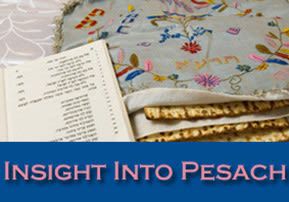
Insight Into Pesach
When the time comes for the Pesach evening Maariv prayer, you should rejoice in your tremendous fortune, in the great privilege you have to be engaged in the Avodah...

Rebbe Kalonymus Kalman (h.y.d.) of Piasceztna sent this letter to his followers before Pesach 5699 (1939), in the midst of WWII.
My dear ones, I am calling to you and speaking to your souls. The Holy days of Pesach are approaching. The holiness of these days infuse us thoroughly; inside and out. Their light fills us and encompasses us.
Nevertheless is stated, “Ohr zarua laTzaddik, U’ l’Yishrei lev simcha” “ Light is sown for the righteous and there is joy for the upright of heart” (Tehillim 97:11). Light is like a seedling; at the beginning it requires our nurturing and our efforts to foster its growth. Like a field needs plowing and hoeing and weeding watering, so do we need to prepare ourselves before the festival. Without the preparation, there can be no joy, no growth and no light. With all the preparations needed for the festival, we must be careful not do divert our attention from ourselves, not to forget to draw down the Holiness of the season.
The main aspect of the festival is to be joyful; to praise and glorify God for all the miracles and all the goodness. This is actually the purpose of the entire creation and the essence of the relationship between the earthly creation and the heavenly family above.
When the time comes for the Pesach evening Maariv prayer, you should rejoice in your tremendous fortune, in the great privilege you have to be engaged in the Avodah (holy service) of Pesach. You should say to yourself, “My joy is without bounds that I have been granted the opportunity to achieve my purpose in the world and to be elevated to the upper spheres. True I have my problems, both material and spiritual, but for now I discard them, the entire world is longer important to me. I even nullify my own self in order to stand in the company of angels, awaiting the presence of God. My only thought is to praise and glorify his great name and to draw down the Holy splendor of God’s light into the world, into my own soul and into the souls of my family.”
Your joy should so exalted that you feel that you can barely hold yourself back from breaking into an ecstatic dance; leaping from the earth to the heavens.
Afterwards when you sit at the Seder table, you imagine yourself sitting down to a festive meal in Gan Eden (paradise) itself, participating in the celebration of the final redemption. All of the aspects of the Seder, eating the matzah and maror, drinking the four cups of wine, and reciting the Haggadah, Hallel and other songs of praise, comprise a holy service to God. The angels above are crowded around to hear our praises of God. Even God himself rejoices in delight as he receives our praise and song as is known from the esoteric literature. A Jew is able to feel God’s delight with each word that he utters from the Haggadah. He is imbued with such holiness that he is replete with sorrow when he finishes each word; if only he could go back and recite the Hallel another 1000 times, he would does so. His whole being is at one with his Creator as he recites words of incredible sweetness; the Haggadah lying open in front of him. One must endeavor to provide sanctuary for the holiness of this night, so that it will abide by him for the whole year.
. . .Continue to foster your love for your fellow Jew for that is the hinge on which all divine service revolves. . . I bless you with . . .a Kosher and joyous Pesach. (from Sefer Derech HaMelech, letters, p. 409)
The Maharal of Prague has astounding insight into the significance of the three main symbols of Pesach, (Korban) Pesach, Matzah and Maror.
Rabban Gamliel said, ” Anyone who did not say these three things on the night of Pesach, has not fulfilled his obligation. They are, (Korban) Pesach, Matzo and Maror.” (Passover Haggadah)
The Israelites were never an object of any of the plagues. They always enjoyed relief even while the Egyptians were suffering. During the plague of blood for example, if a Jew and an Egyptian drank water from the same cup, for the Egyptian it was blood and for the Jew it was water. And so on for every plague.
Nevertheless, God had to intervene to save the Israelites from the plague of the death of the first born. Why were they suddenly subject to this plague?
It must be understood that the plagues grew in severity from the first to the last. Therefore, the plague of the death of the first born was the worst of them all. The spiritual level of the Israel was very high, so much so that the when the plagues started they couldn’t be harmed by them. The plague of the death of the first born, however, was carried out by God Himself, and it was so severe, that the Jews’ elevated stature was unable to protect them. To save them, God took Yisrael to him as a nation. He actually made them a part of himself. Since Yisrael became an integral part of God, they were spared. Therefore they earned the privilege of serving God and he obligated them to bring the Korban Pesach. Performing this service was a sign that they had a unique relationship with God.
The Aramaic translation of the word Pesach is “Chayas” (Shemot 12:11,13,27). It means mercy or caring. It demonstrates the special relationship that developed between us and God when He took us as His people and saved us from the plague of the death of the first born. He had mercy on His people and saved them from annihilation. In that God is unique and singular, He took to himself a nation that is unique and singular, unlike any nation of the world. This quality is still a feature of the Jewish people today. There has never been a successful attempt by Jews to integrate into any other nation; we always remained distinct, a people apart. The Maharal points out how the Korban Pesach is, with all of its laws, an indication of this idea of unity between Yisrael and God.
1) It was a mitzvah to roast and eat the Korban Pesach “with its head on its knees”. That is to say complete, and not cut into smaller pieces (unlike every other type of sacrifice). Something which indicates unity must be whole (Shemot 12:9).
2) The Korban Pesach was eaten in one house, and only by the family group that was registered for that particular animal. This demonstrates that unity must be concentrated in one place (Shemot 12:46).
3) The Korban Pesach was taken from a 1 year old sheep or goat. The number one indicates unity (Shemot 12:5).
4) The Korban Pesach was taken from the goats or sheep, but not from the cattle. A goat or sheep is a more delicate and tender animal. If it received a wound on one of its limbs, the animal itself would suffer the pain of the injury. An ox or cow, due to its bulk, would not be so affected by a similar wound. It would only feel pain in that particular limb.
The Jewish nation is likened to a sheep. When one Jew transgresses (as in the case of Achan, see Joshua 7), the whole nation suffers. The Jews, like the sheep have a presence which is less physical. Something that is more spiritual is naturally more sensitive (Shemot 12:5).
5) The Korban Pesach was roasted over the fire. Cooking in water causes meat to become soggy and the pieces separate. Roasting over the fire draws out the juices and the meat becomes consolidated, another indication of unity (Shemot 12:8,9).
6) It was prohibited to break any of the bones of the Korban Pesach. Again, any thing whole and not broken is an indication of unity (Shemot 12:46).
By eating the Pesach according to all of its laws, a Jew demonstrated his unity with God. This is the unity which He invested in Israel and thereby commanded them concerning the Korban Pesach.
Furthermore the Pesach had to be eaten with Matzah and Maror. Matzah represents the redemption from Egypt as it is written, “…because you went out of Egypt in great haste” (Devarim 16:3). Furthermore, “…remember the day you went out of Egypt, from the house of slavery, because he took you out with a strong hand, don’t eat any chametz“(Shemot 13:3).
These verses show that the reason for the prohibition of chametz is because God took us out of Egypt quickly and with a mighty hand. We went out from Egypt so quickly that there was no time to let the dough rise. It had to be baked into flat Matzot.
Haste, denotes force. Anything which is done in haste or with great speed is also done with great strength. (I like to think of sprinters coming out of the blocks. Their great speed is accompanied by tremendous lateral force.) Taking one nation out from another, and giving birth to a new national identity requires a great show of strength. Therefore Matzah is a symbol of the redemption.
Maror on the other hand, the bitter herbs, is a symbol of the slavery and the difficult back breaking labor.
The Pesach sacrifice was designated to be eaten with both Matzah and Maror. Matzah and Maror are two opposites. One delivers a message of redemption, the other of servitude. This is to refute the heretics who claim that if God is One, then He is limited to only one type of conduct. He can wield his influence only in one way. If God is benevolent, they maintain, then He may do only good in the world. According to the heretics, The presence of evil proves that God is many and not one.
Nevertheless, we eat the Korban Pesach with both Matzah and Maror. We demonstrate that both the servitude and the redemption are from the Almighty. The greatness of a God who is one is demonstrated by the fact that He can embody two opposites. Slavery and freedom are both from the same source. Moreover it is clear that the years of servitude were for our benefit, and it was an integral period of refinement, a prelude to the freedom which was to come.
PESACH, MATZO, MAROR
The first Gerrer Rebbe, the Chiddushei HaRim, asked, “Why is the Maror, a symbol of the slavery, preceded by the Matzah, the symbol of redemption? The order is wrong, it should be the other way around.” He answered with a parable from HaRav Simcha Bunem of Pshis’cha.
There was once a King who had an only son. The King loved his only son deeply and showered him with affection and presents. The son, however, did not know how to express his gratitude and became spoiled. The King, wishing to teach him a lesson and turn him around for the good, exiled him the Kingdom.
After a number of years of the boy’s absence, the King became overwhelmed with mercy for his son and wished him to return. He sent out a royal emissary, an important and trusted minister to search the Kingdom for his son. After an arduous journey, the minister located the young man in a remote farming village. He was dressed in rags and thoroughly drunk.
“I’ve been looking for you for so long!” the ministered stammered in disbelief.
“Wonderful, splendid!” replied the drunken son. “If only I had a pair of boots and fleece jacket, nobody in the world would be happier than I!”
The minister was crestfallen. He could not believe how far this boy had fallen. He had completely forgotten his royal upbringing. His only desires were mundane, his only concern his physical desires.
In Psalm 106, the Psalm that recounts the exodus from Egypt, King David writes, “And he saw their distress when he heard their song.” (v. 44) Yisrael was sunk deep into slavery, yet they were singing! The apex of slavery is when the slave becomes reconciled to his situation and no longer desires freedom.
“Therefore”, explained the Chiddushei HaRim, “Matzah, which represents freedom and redemption, precedes Maror, the symbol of enslavement, to remind us how far into servitude Yisrael had descended. Until they were redeemed, they didn’t even realize the bitterness of the slavery.


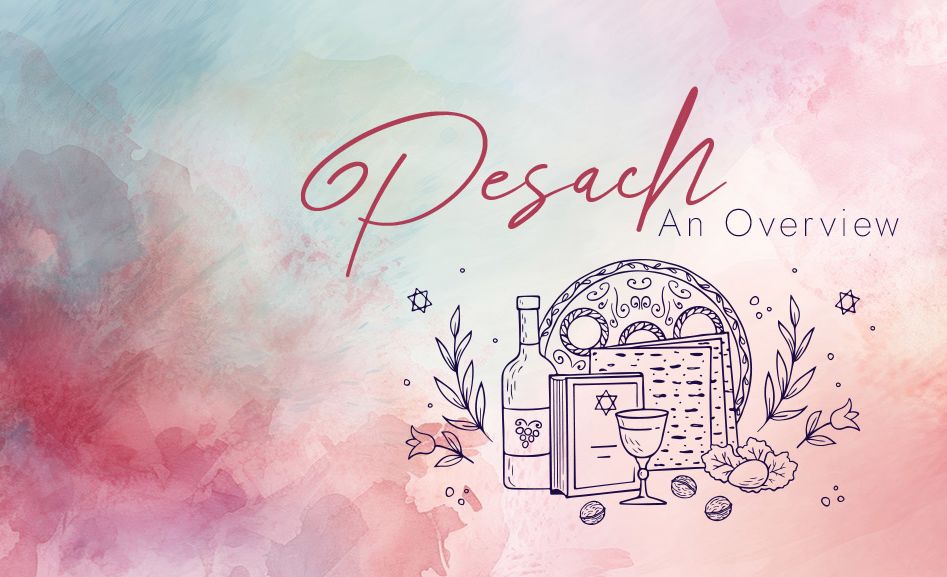
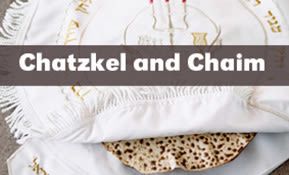

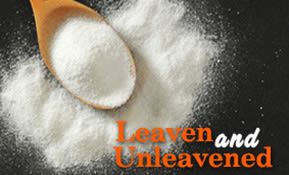
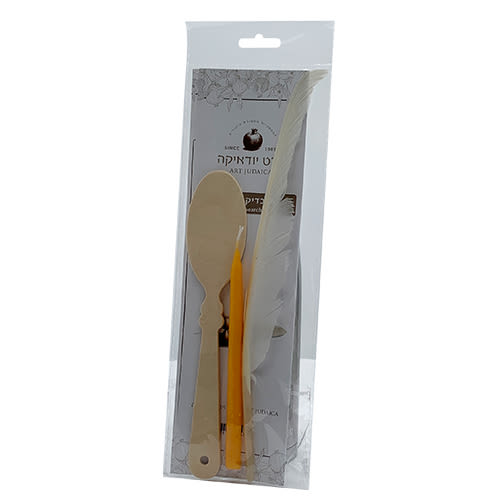
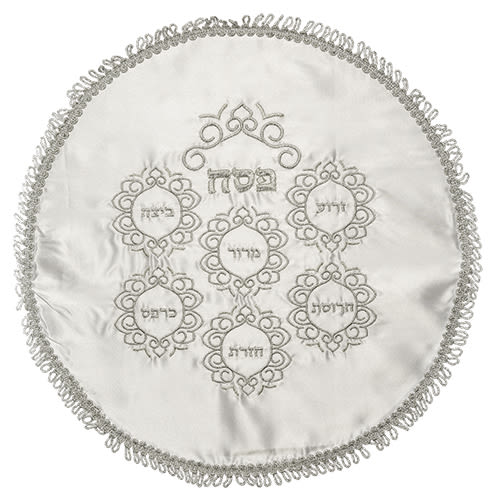
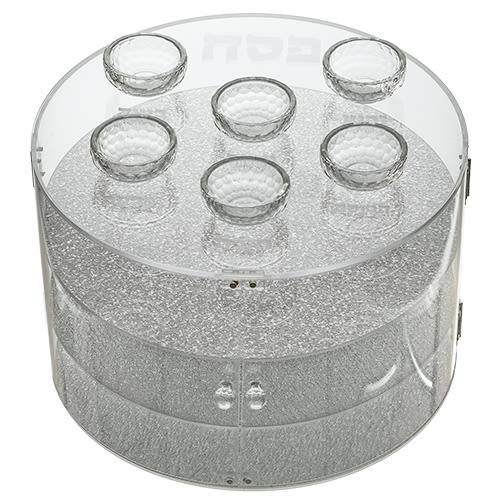
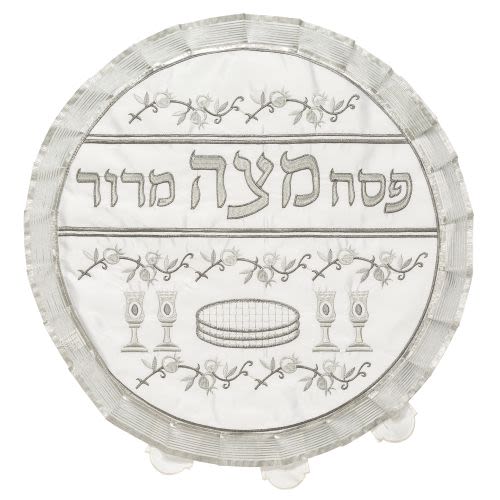
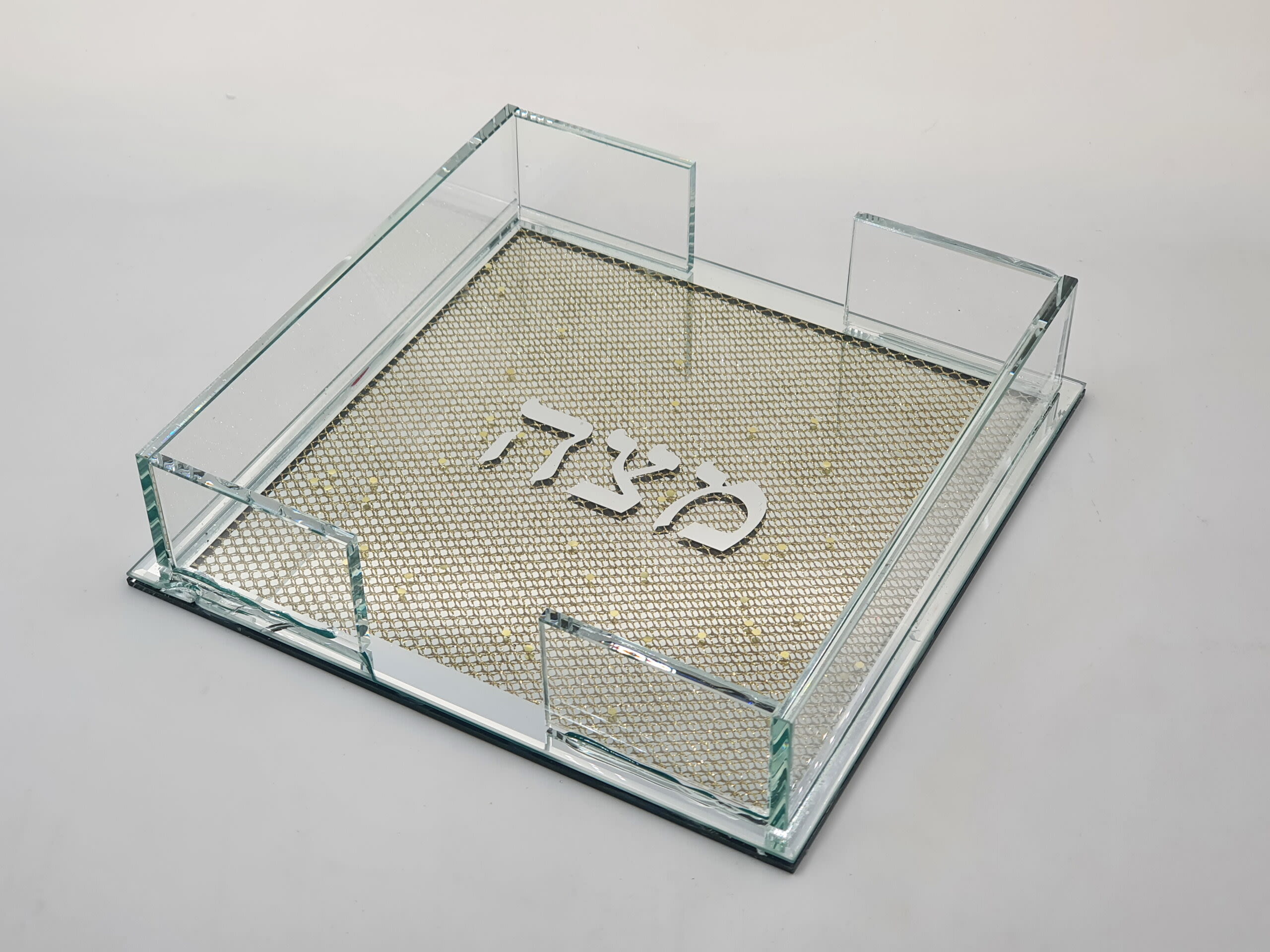
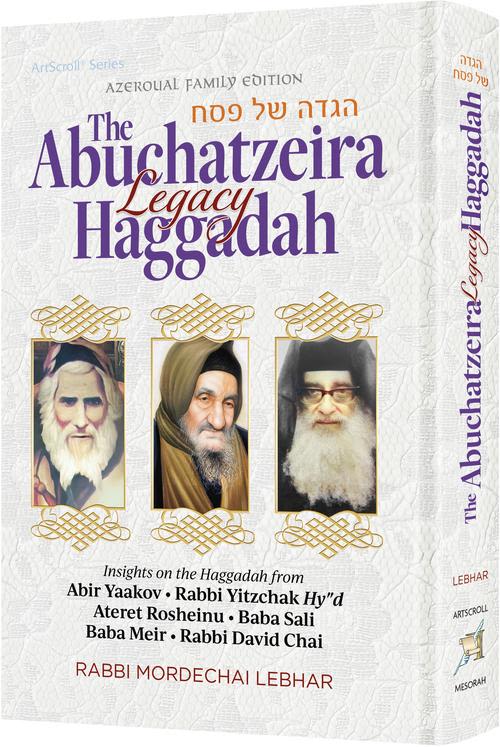
Tell us what you think!
Thank you for your comment!
It will be published after approval by the Editor.